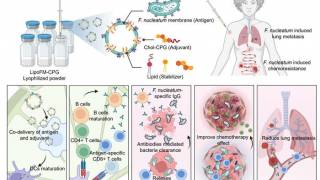Baylor To Launch Glioblastoma Vaccine Study

A cancer immunotherapy research group at Baylor College of Medicine announced it secured Investigational New Drug regulatory clearance through the Food and Drug Administration to perform a phase I clinical study in newly-diagnosed adult patients with glioblastoma (GBM).
Glioblastomas are malignant Grade IV tumors, where a large portion of tumor cells are reproducing and dividing at any given time. It is a highly lethal form of brain cancer, with a 5-year survival rate of less than 10 percent in most age groups, says the American Brain Tumor Association.
This vaccine technology works by “tricking” the immune system into treating cancer as it would a viral infection through the reprogramming of powerful immune cells, known as dendritic cells.
“If you can convince the immune system that the cancer is a viral infection, you can generate a more powerful anti-cancer immune response than ordinarily possible through regular vaccination techniques,” said Dr. William Decker, associate professor of pathology and immunology at Baylor, in a press release.
Despite continued efforts over several decades to develop new therapies for glioblastoma, none have appreciably improved how long patients live.
Researchers who study glioblastoma have been hopeful that immunotherapy might be able to succeed where other therapies have not. And in laboratory studies and human clinical trials, they are leaving no immunotherapy stone unturned.
Unfortunately, several immune-based treatments that looked highly promising in early-phase studies of patients with glioblastoma have not panned out in larger, phase 3 clinical trials.
“Just the fact that we have had some phase 3 trials in glioblastoma, where for years we had a hard time getting past phase 2 trials, is an encouraging sign,” Dr. Michael Lim said, in a Cancer.org statement.
“We’re talking about a disease that has been one of the hardest to treat in the history of oncology,” said Mark Gilbert, M.D., director of the Neuro-Oncology Branch in NCI’s Center for Cancer Research. “And trying to develop and test immune-based treatments for glioblastoma, is a whole new realm.”
Recent Glioblastoma vaccine news:
- Glioblastoma Patients Receiving Combination Therapy With SurVaxM Reported Positive Immunogenicity
- Glioblastoma Vaccine Shows Positive Phase Ib Study Results
The commercialization rights to the Baylor-developed enabling technologies have been granted by the Baylor Licensing Group to Diakonos Research, a limited liability partnership headquartered in Houston, Texas.
Financial support for this phase 1 clinical study is being provided by a charitable cancer foundation.
Our Trust Standards: Medical Advisory Committee


























